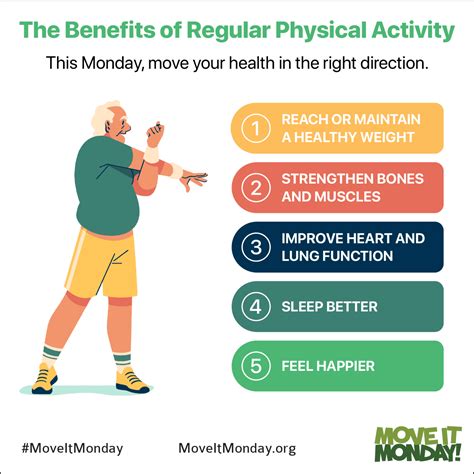The path to achieving a balanced and ideal body weight is a journey that requires dedication and a holistic approach. This article presents ten indispensable guidelines that will empower you to embark on a transformative and sustainable weight loss journey.
1. Embrace Mindful Eating: Cultivate an awareness of your eating patterns and develop a deeper connection with the nourishment you consume. By practicing mindful eating, you can savor each bite, recognize hunger and fullness cues, and make conscious food choices.
2. Prioritize Portion Control: Instead of fixating on eliminating certain foods, focus on portion control. Opt for smaller plate sizes and be mindful of portion sizes to create a calorie deficit without deprivation.
3. Nurture Your Body with Nutrient-Dense Foods: Fuel your body with foods that provide essential vitamins, minerals, and antioxidants. Incorporate a colorful variety of fruits, vegetables, whole grains, and lean proteins into your meals to support overall health.
4. Hydrate, Hydrate, Hydrate: Water is your body's best confidant. Adequate hydration not only supports bodily functions but also helps stave off hunger pangs. Aim to drink at least eight glasses of water daily.
5. Stay Physically Active: Engage in regular physical activity that you enjoy. Whether it's dancing, cycling, or walking in nature, move your body consistently to boost your metabolism and improve overall fitness levels.
6. Foster Healthy Sleep Patterns: Good-quality sleep is crucial for weight management and overall well-being. Strive to maintain a consistent sleep schedule and create a sleep-inducing environment to reap the benefits of adequate rest.
7. Cultivate a Supportive Network: Surround yourself with individuals who uplift and encourage your weight loss journey. Seek out friends, family, or support groups that share your goals and can offer guidance and motivation.
8. Manage Stress Levels: Excessive stress can hinder weight loss efforts. Incorporate stress management techniques such as meditation, deep breathing exercises, or engaging in hobbies to promote emotional well-being and maintain a healthy weight.
9. Celebrate Non-Scale Victories: Weight loss is not solely defined by numbers on a scale. Celebrate achievements beyond pounds lost, such as increased energy levels, improved mood, or fitting into a smaller size, to reinforce positive habits.
10. Be Kind to Yourself: Remember, sustainable weight loss is a gradual process. Treat yourself with kindness, patience, and self-compassion throughout your journey. Celebrate small victories and learn from setbacks, keeping your focus on long-term success.
Set Feasible and Achievable Targets

When embarking on a journey towards a healthier weight, it is important to establish realistic and attainable goals. By setting feasible targets, you increase the chances of successfully achieving them in a safe and sustainable manner.
One crucial aspect of setting realistic goals is understanding your body's capabilities and limitations. Each individual is unique and has different predispositions, so it is important to consider your own body type, metabolism, and overall health when determining what is achievable for you.
Avoid falling into the trap of setting unrealistic expectations. Instead of striving for drastic weight loss in a short period, focus on gradual and steady progress. This approach allows your body to adapt and ensures that the changes you make are sustainable in the long term.
Furthermore, it is essential to set goals that are within your control. Instead of fixating on a specific number on the scale, aim for behaviors that you can directly influence, such as incorporating regular physical activity into your routine or making healthier food choices.
Remember, sustainable weight loss is not a race but rather a journey towards a healthier lifestyle. By setting feasible and achievable targets, you set yourself up for success and increase the likelihood of maintaining a healthy weight in the long run.
Create a Well-Balanced and Nourishing Meal Plan
When it comes to achieving and maintaining a healthy weight, having a well-balanced and nutritious meal plan is essential. A carefully curated meal plan can provide you with the necessary nutrients and energy to support your weight loss journey. By incorporating a variety of wholesome foods and making mindful choices, you can create a meal plan that satisfies both your taste buds and nutritional needs.
1. Incorporate a diverse range of vegetables, such as leafy greens, colorful peppers, and cruciferous vegetables, to ensure a wide array of vitamins, minerals, and antioxidants in your diet.
2. Include lean sources of protein, such as chicken, turkey, tofu, or legumes, to help build and repair tissues, boost metabolism, and counteract hunger pangs.
3. Opt for whole grains like quinoa, brown rice, oats, or whole wheat bread to provide a steady release of energy and increase fiber intake.
4. Don't forget healthy fats! Avocados, nuts, seeds, and olive oil are excellent choices that can promote satiety, support brain health, and help absorb fat-soluble vitamins.
5. Incorporate dairy or dairy alternatives that are low in fat, such as Greek yogurt or almond milk, for a calcium boost and to promote bone health.
6. Stay hydrated by drinking plenty of water throughout the day. Water can help control appetite, improve digestion, and support overall health.
7. Minimize processed and sugary foods, as they often provide empty calories and can lead to weight gain. Instead, opt for natural sweeteners like honey or pure maple syrup.
8. Plan your meals and snacks in advance to avoid impulsive and unhealthy choices. This can also help you adhere to portion control and maintain a balanced intake of nutrients.
9. Experiment with herbs, spices, and seasonings to add flavor to your meals without relying on excess salt or sugary sauces.
10. Finally, listen to your body! Pay attention to hunger and fullness cues, and adjust your meal plan accordingly. Treat yourself occasionally to foods you enjoy, but practice moderation to maintain a healthy balance.
By creating a well-balanced and nutritious meal plan, you can nourish your body and support your weight loss goals in a sustainable and enjoyable way.
Incorporate Regular Physical Activity into Your Routine

One essential component of a healthy weight loss journey is the integration of regular physical activity into your daily routine. By engaging in physical exercise on a consistent basis, you can effectively support your goals of achieving and maintaining a sustainable weight.
Make it a point to allocate dedicated time for exercise each day, whether it's in the form of brisk walking, jogging, cycling, or participating in recreational sports. The key is to find an activity that you enjoy and that fits into your schedule, making it easier for you to stick to your exercise routine.
In addition to scheduled workout sessions, try to incorporate physical activity into your daily tasks and activities. Opt for taking the stairs instead of the elevator, walking or biking to nearby destinations instead of driving, or engaging in household chores that require movement and muscle exertion.
A great way to ensure you stay motivated and committed to regular physical activity is by setting goals for yourself. Whether it's aiming to increase your daily step count, training for a specific event, or trying out new fitness classes, having objectives can help you stay focused and excited about your exercise routine.
- Find a workout buddy: Exercising with a friend or family member can make the experience more enjoyable and provide additional accountability.
- Switch up your routine: Avoid monotony by incorporating different types of exercises and activities into your schedule. This will help prevent boredom and target different muscle groups.
- Track your progress: Keep a record of your workouts and achievements to track your progress over time. This can serve as a source of motivation and help you identify areas that may need improvement.
- Stay hydrated: Remember to drink plenty of water before, during, and after your workout sessions to stay hydrated and maximize performance.
- Listen to your body: Pay attention to how your body feels during and after exercise. If you experience pain or discomfort, modify your routine or seek professional advice.
- Don't forget to warm up and cool down: Prioritize warming up your muscles and stretching before each workout, and allow time for cooling down afterwards to prevent injury and help your body recover.
- Combine cardio and strength training: Incorporate both cardiovascular exercises to improve stamina and burn calories, as well as strength training to build lean muscle tissue and increase metabolism.
- Practice consistency: Consistency is key when it comes to achieving long-term results. Commit to a regular exercise routine and make it a non-negotiable part of your lifestyle.
Remember, incorporating regular physical activity into your routine not only aids in weight loss but also provides numerous other benefits for your overall health and well-being. Embrace the opportunity to discover enjoyable forms of exercise and make them a central part of your daily life.
Stay Hydrated and Drink Plenty of Water
Adequate hydration plays a crucial role in maintaining a healthy body weight. By drinking plenty of water, you can support your weight loss journey and enhance your overall well-being. Staying well-hydrated not only supports proper digestion and metabolism, but it also helps to control your appetite and cravings.
| 1. Hydration and Weight Loss |
| Ensuring optimal hydration is essential for efficient weight loss. When you drink enough water, it aids in suppressing your appetite, allowing you to feel fuller for longer periods. This can prevent overeating and unnecessary snacking, ultimately helping you achieve your weight loss goals. |
| 2. Water as a Calorie-Free Beverage |
| Water is an excellent choice for hydration as it is calorie-free and does not contribute to weight gain. By replacing sugary drinks such as soda and fruit juices with water, you can significantly reduce your overall calorie intake, helping you create a calorie deficit necessary for weight loss. |
| 3. Improved Digestion and Metabolism |
| Proper hydration supports healthy digestion and metabolism. Water helps break down food and aids in the absorption of nutrients. It also helps to eliminate waste and toxins from the body, promoting efficient metabolism and overall digestive health. |
| 4. Energy and Endurance |
| Staying hydrated is essential for maintaining optimal energy levels and increasing endurance during physical activities. When you are adequately hydrated, your muscles perform better, reducing the risk of fatigue and allowing you to engage in longer and more effective workouts. |
| 5. Water as a Natural Appetite Suppressant |
| Drinking water before meals can act as a natural appetite suppressant. This simple practice can help control portion sizes and prevent overeating. Additionally, dehydration can often be mistaken for hunger, so drinking water regularly can reduce unnecessary snacking and keep your overall calorie intake in check. |
| 6. Hydration and Optimal Nutrient Absorption |
| Proper hydration ensures optimal nutrient absorption in the body. Without adequate water intake, your body may struggle to absorb essential vitamins and minerals from the food you consume. By staying hydrated, you can maximize the benefits derived from your healthy and balanced diet. |
| 7. Discovering Your Hydration Needs |
| The amount of water you need can vary based on factors like age, weight, activity level, and climate. It is important to listen to your body's signals of thirst and aim to drink enough water throughout the day to maintain a balanced hydration level. |
| 8. Tips for Staying Hydrated |
| Carry a reusable water bottle with you throughout the day to remind yourself to stay hydrated. Set daily water intake goals and track your progress. You can also incorporate hydrating foods like fruits and vegetables into your diet, as they contain high water content. |
| 9. Hydration and Weight Maintenance |
| Once you have achieved your weight loss goals, maintaining a balanced level of hydration becomes crucial for weight maintenance. By regularly drinking water, you can prevent weight regain and sustain the healthy lifestyle changes you have implemented. |
| 10. Consult a Healthcare Professional |
| If you have any specific concerns about your hydration needs or weight loss journey, it is recommended to consult a healthcare professional. They can provide personalized guidance and support to help you achieve your weight loss goals in a safe and sustainable manner. |
Practice Mindful Eating and Portion Control

One key aspect of successful and sustainable weight loss is developing mindful eating habits and practicing portion control. By paying attention to the food we consume and the portions we serve ourselves, we can better manage our weight and promote overall well-being.
When practicing mindful eating, it's important to fully engage with the experience of eating, focusing on the taste, texture, and smell of the food. This can help us develop a greater appreciation for the food we consume and prevent mindless overeating.
Portion control involves being mindful of the amount of food we put on our plate and ensuring it aligns with our nutritional needs. It's important to understand that portion sizes can vary depending on our individual goals, activity levels, and metabolism. By being aware of serving sizes and the number of calories we consume, we can make better decisions about our meals.
Here are some practical tips for practicing mindful eating and portion control:
- Eat slowly and savor each bite.
- Pay attention to internal hunger and fullness cues.
- Use smaller plates and bowls to control portion sizes.
- Avoid distractions while eating, such as watching TV or using electronic devices.
- Listen to your body's natural signals of hunger and stop eating when you feel satisfied, not overly full.
- Plan and prepare meals in advance to have more control over portion sizes and ingredients.
- Include a variety of colorful fruits and vegetables in your meals to add volume and nutrients without excessive calories.
- Drink water or herbal tea before meals to help curb your appetite.
- Avoid eating out of packages or containers, as it makes it harder to control portions.
- Practice mindful eating in social settings by focusing on the conversation and enjoying the company of others.
By incorporating these mindful eating and portion control practices into your daily routine, you can enhance your weight loss journey and maintain a healthy lifestyle in the long run.
Avoid Skipping Meals and Opt for Regular Eating Patterns
Establishing a consistent eating routine and avoiding the temptation to skip meals is essential for maintaining a healthy weight. Implementing regular eating patterns can have a significant impact on achieving your weight loss goals and overall well-being.
Skipping meals may seem like an effective way to reduce calorie intake, but it can actually have negative consequences on your metabolism and energy levels. When you skip meals, your body goes into "starvation mode," slowing down your metabolism to conserve energy. This can make it harder to lose weight in the long run.
Instead of skipping meals, focus on consuming a balanced diet that includes a variety of foods and nutrients. Including protein, healthy fats, and complex carbohydrates in your meals can help you feel satisfied and maintain stable blood sugar levels throughout the day.
In addition to avoiding skipping meals, it's also important to establish regular eating patterns. Eating at consistent times each day can help regulate your metabolism and prevent excessive hunger or cravings. Planning and preparing meals in advance can aid in sticking to a regular eating routine.
Furthermore, be mindful of portion sizes and listen to your body's hunger and fullness cues. Eating slowly and mindfully can help you recognize when you are satisfied, preventing overeating.
By avoiding skipping meals and opting for regular eating patterns, you can support your weight loss journey and enhance your overall health and well-being.
Reduce Consumption of Highly Processed and Sugary Foods

One important aspect of achieving a healthy weight is to limit your intake of highly processed and sugary foods. These types of foods can have a negative impact on your weight and overall well-being. It is essential to be mindful of the food choices you make and opt for healthier alternatives.
1. Seek whole, unprocessed foods: Instead of reaching for packaged snacks or processed meals, choose whole foods like fresh fruits, vegetables, lean meats, and whole grains. These foods are natural and provide necessary nutrients for your body.
2. Stay away from sugary beverages: Sweetened drinks, such as soda, energy drinks, and fruit juices, are high in calories and added sugars. Opt for water, unsweetened tea, or freshly squeezed juice instead.
3. Be mindful of hidden sugars: Many processed foods, such as sauces, condiments, and even some bread, contain added sugars. Read food labels carefully and choose products with lower sugar content or no added sugars.
4. Limit processed snacks: Processed snacks like chips, cookies, and candy are often packed with unhealthy fats, artificial additives, and high levels of sugar and salt. Replace them with healthier options like nuts, seeds, or homemade snack bars.
5. Avoid fast food: Fast food meals are typically high in calories, unhealthy fats, and sodium. Prepare your meals at home using fresh ingredients to have better control over the nutritional content.
6. Minimize consumption of sugary desserts: Indulging in sugary desserts like cakes, pastries, and ice cream can contribute to weight gain. Limit these treats and satisfy your sweet tooth with healthier alternatives like fresh fruit or yogurt.
7. Practice portion control: Even when consuming healthier options, it's important to practice portion control. Measure out your food to avoid overeating, as excess calories can hinder your weight loss efforts.
8. Cook from scratch: By cooking meals from scratch, you have control over the ingredients and can avoid hidden sugars and unhealthy additives. It also allows you to experiment with different flavors and make healthier substitutions.
9. Plan your meals and snacks: Having a meal plan and prepping snacks in advance can help you make better food choices and reduce the temptation to reach for processed and sugary options when hunger strikes.
10. Opt for healthier alternatives: Don't deprive yourself of the foods you enjoy. Instead, look for healthier alternatives like dark chocolate instead of milk chocolate, air-popped popcorn instead of chips, or homemade smoothies instead of sugary milkshakes.
Seek Support from Loved Ones or Professionals
Embarking on a journey to achieve a healthier weight can be challenging, both mentally and physically. It is important to have a strong support system in place to help you along the way. Seeking support from friends, family, or a professional can make a significant difference in your weight loss journey.
Whether it's friends who have similar goals or family members who are willing to provide encouragement, having people in your corner can help keep you motivated and accountable. They can offer advice, listen to your concerns, and celebrate your achievements with you.
If you feel you need more guidance and expertise, consider reaching out to a professional, such as a registered dietitian or a personal trainer. These individuals have a wealth of knowledge and can customize a plan based on your specific needs and goals. They can provide you with the necessary tools and strategies to make sustainable lifestyle changes.
- Join a support group or weight loss community to connect with individuals who share similar experiences and challenges.
- Ask a friend or family member to be your workout buddy, making exercise more enjoyable and keeping you accountable.
- Share your goals and progress with loved ones, allowing them to offer support and encouragement along the way.
- Consider seeking professional guidance from a registered dietitian or a personal trainer to create a personalized plan.
- Take advantage of online resources, such as forums or websites with expert advice, to gain additional support and knowledge.
Remember, seeking support is not a sign of weakness but rather a sign of strength. Surrounding yourself with individuals who believe in you and want to see you succeed can greatly enhance your weight loss journey. Together, you can overcome obstacles and celebrate the achievement of your healthier self.
Track Your Progress and Stay Accountable

Monitoring your progress and holding yourself accountable are crucial aspects of achieving your desired weight loss.
Keeping track of your progress allows you to have a clear understanding of how far you have come and what steps you need to take to reach your goals. It provides you with valuable information that can help you make necessary adjustments to your approach.
One effective way to track your progress is by regularly weighing yourself and keeping a record of your weight. However, it is important to remember that weight fluctuates naturally, so it's essential to look at the overall trend rather than individual daily fluctuations.
In addition to monitoring your weight, it can also be beneficial to measure other aspects of your body, such as waist circumference or body fat percentage. These measurements can provide a more comprehensive view of your progress and can help you stay motivated during your weight loss journey.
Another way to track your progress is by keeping a food diary. Recording everything you eat and drink throughout the day can help you become more aware of your eating habits and identify any areas where you may need to make improvements. It can also serve as a reminder to make healthier food choices and avoid mindless snacking.
Furthermore, holding yourself accountable is crucial for long-term success. Find a method that works for you, whether it be through self-reflection, support from friends and family, or joining a weight loss community. Share your goals with others and regularly update them on your progress. Not only will this help you stay motivated and focused, but it will also create a sense of responsibility and commitment.
Remember, tracking your progress and staying accountable are not meant to add pressure or stress to your weight loss journey. Instead, they serve as valuable tools to empower you and provide guidance along the way. Stay consistent, stay motivated, and celebrate every milestone you achieve!
Practice Self-Care and Prioritize Your Well-being
In order to achieve long-term, sustainable weight loss, it is crucial to focus on taking care of yourself and prioritizing your overall well-being. By incorporating self-care practices into your daily routine, you can cultivate a healthier lifestyle that supports your weight loss goals.
Here are some strategies to practice self-care and prioritize your well-being:
- 1. Nourish your body with nutritious foods: Instead of relying on fad diets or restrictive eating, focus on consuming a well-balanced diet that includes a variety of whole, unprocessed foods. Fill your plate with fruits, vegetables, lean proteins, and whole grains to fuel your body with essential nutrients.
- 2. Stay hydrated: Drinking an adequate amount of water is essential for overall health, metabolism, and weight management. Aim to drink at least 8 glasses of water per day and limit sugary beverages.
- 3. Get enough sleep: Prioritize quality sleep to support your weight loss journey. Lack of sleep can disrupt hormonal balance, increase cravings, and hinder your ability to make healthy choices.
- 4. Manage stress: Find healthy ways to cope with stress, such as practicing mindfulness, deep breathing exercises, or engaging in activities that bring you joy and relaxation. Chronic stress can lead to weight gain and hinder your progress.
- 5. Engage in physical activity: Regular exercise not only helps with weight loss but also improves overall well-being. Find activities that you enjoy and make them a part of your daily routine.
- 6. Prioritize mental health: Taking care of your mental well-being is essential for a healthy weight loss journey. Seek support from professionals if needed and incorporate stress-reducing techniques like yoga or meditation.
- 7. Practice portion control: Pay attention to portion sizes and avoid mindless eating. Use smaller plates, measure your food, and listen to your body's hunger and fullness cues.
- 8. Build a support system: Surround yourself with a supportive network of friends, family, or even online communities who can encourage and motivate you along your weight loss journey.
- 9. Set realistic goals: Instead of focusing solely on the number on the scale, set small, achievable goals that are realistic and sustainable. Celebrate your progress along the way to stay motivated.
- 10. Practice self-compassion: Be kind to yourself throughout the weight loss process. Understand that setbacks happen, and it's important to forgive yourself and keep moving forward.
By incorporating these self-care practices into your lifestyle, you can create a solid foundation for healthy weight loss while prioritizing your overall well-being. Remember, sustainable weight loss is a journey that requires patience, consistency, and self-love.
FAQ
What are some safe and sustainable ways to achieve healthy weight loss?
To achieve healthy weight loss safely and sustainably, it is important to focus on making long-term lifestyle changes rather than opting for quick fixes. Some tips include setting realistic goals, eating a balanced and nutritious diet, incorporating regular exercise, staying hydrated, getting enough sleep, managing stress, and seeking support from a healthcare professional or a registered dietitian.
Is it necessary to count calories in order to achieve healthy weight loss?
Counting calories is not always necessary for healthy weight loss. While it can be a helpful tool for some individuals to understand portion sizes and their calorie intake, it is not the only factor that matters. It is more important to focus on the quality of the food consumed, such as choosing whole foods, fruits, vegetables, lean proteins, and healthy fats, rather than solely on the number of calories.
What role does exercise play in healthy weight loss?
Exercise plays a crucial role in healthy weight loss as it helps in burning calories, improving metabolism, building muscle mass, and boosting overall physical and mental well-being. It is recommended to engage in a combination of aerobic exercises, such as brisk walking or cycling, and strength training exercises, such as weightlifting or resistance training, for optimal results.
How can managing stress contribute to successful weight loss?
Managing stress is important for successful weight loss because chronic stress can lead to emotional eating, increased cravings, and hormonal imbalances that affect metabolism. Engaging in stress-reducing activities, such as meditation, yoga, deep breathing exercises, or engaging in hobbies, can help control stress levels and prevent weight gain associated with stress.
What are some practical tips for incorporating healthy eating habits into daily life?
Some practical tips for incorporating healthy eating habits into daily life include meal planning, preparing meals at home, controlling portion sizes, avoiding mindless snacking, choosing whole grains, including a variety of fruits and vegetables, opting for lean protein sources, reducing processed food and sugary beverage consumption, and practicing mindful eating by listening to hunger and fullness cues.
Why is setting realistic goals important for healthy weight loss?
Setting realistic goals is important for healthy weight loss because it sets you up for success and helps maintain motivation. When you set unrealistic goals, such as wanting to lose a large amount of weight quickly, it can be discouraging if you don't see immediate results. This can lead to frustration and the temptation to give up on your weight loss journey altogether. By setting realistic goals, you can break down your overall weight loss target into smaller, achievable milestones. This not only boosts your confidence but also allows you to celebrate your progress along the way.



